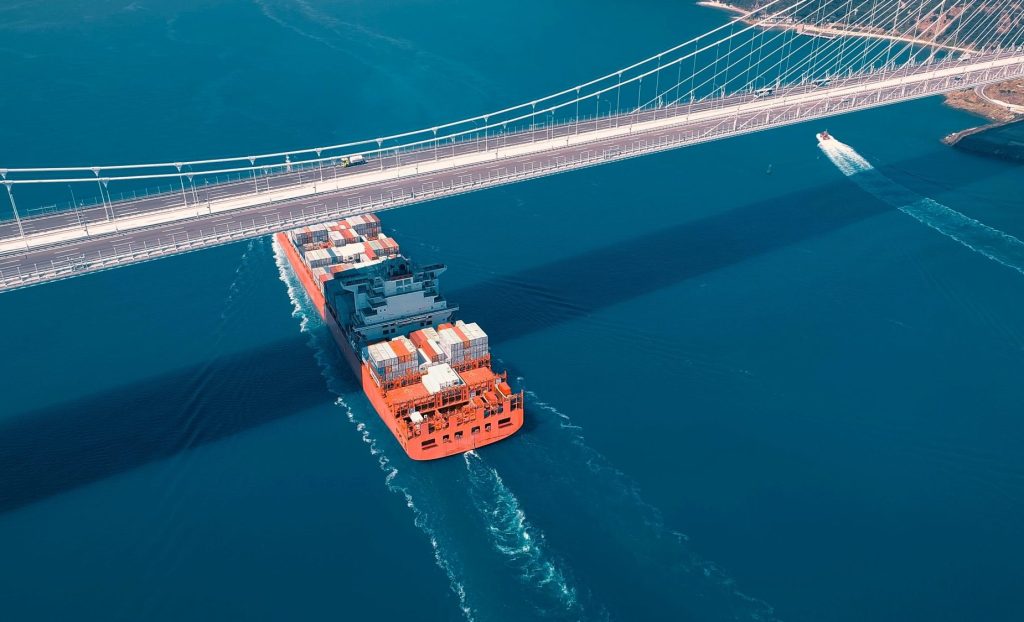U.S. lobbying stalls plan to transition maritime shipping to net zero
Retailers and consumer packaged goods companies would have seen Scope 3 benefits from the framework. Read More

- The U.N. agency that oversees maritime shipping postponed the decision after the U.S. threatened countries that backed it.
- The framework, the first of its kind at a global level, would impose emissions-intensity limits.
- Discussions about implementation of the framework are expected to continue, and another vote is scheduled for next year.
The global effort to decarbonize maritime shipping and reduce value-chain emissions stalled this week after intense lobbying from the U.S. forced negotiators to delay a decision on a net-zero plan for the industry.
Proponents of the plan had gone into a meeting of the U.N.’s International Maritime Organization (IMO) with cautious optimism. Earlier this year, nations agreed to set steadily increasing emissions-intensity limits on vessels under the IMO’s Net Zero Framework. Owners of large vessels would have been required to cut emissions by as much as 43 percent by 2035, compared to a 2008 baseline. The framework was hailed as the first time an industry would be so regulated at a global level.
The IMO meeting was expected to adopt the plan then move to implementation, but support drained away after the U.S. threatened to impose tariffs, visa restrictions and port levies on countries that backed the plan. On Friday, the nations voted to postpone a decision for a year.
‘Unprecedented effort’
“During the past three days, an unprecedented U.S.-led effort to block a global agreement has culminated in multiple spontaneous proposals, and intense pressure both on and out of the floor,” said Alison Shaw, IMO manager at Transport & Environment, a nonprofit with offices in multiple European countries. “It is a clear effort to enact climate denialism, undo years of constructive negotiation and abandon the very targets the IMO has set for itself.”
The decision will slow efforts by companies to reduce shipping emissions, which form a significant part of Scope 3 inventories, particularly for retailers and consumer packaged goods businesses. Maritime shipping accounted for around 2.5 percent of IKEA’s value-chain emissions in 2024, for instance. The company is aiming to purchase only zero-emissions ocean transport services by 2040.
“This is a loss of momentum for the shipping industry’s efforts to decarbonize,” said a spokesperson for Maersk, which operates more than 700 container vessels on routes between 130 countries.
Currently, companies intent on tackling these emissions rely on a patchwork of initiatives including Katalist, a “book and claim” platform that allows them to support and take credit for purchases of low-carbon maritime fuels, such as ammonia and methanol. Members include Amazon, IKEA, Levi Strauss, Mondelez International and Patagonia.
That project and others continue, but spread of the new technologies will be far slower in the absence of the rules the framework would have imposed.
“We are in a very early part of a transition, and more than 99 percent of maritime transport is still powered by fossil fuels,” said Jesse Fahnestock, director of decarbonization at the Global Maritime Forum, a non-profit that partners with shipping companies. “So to get alternative fuels and the vessels that can use them out there, the regulatory framework is a hugely important lever.”
Talks continue
Despite the pressure from the U.S. and others, nations agreed to delay rather than scrap the framework altogether. Fahnestock noted that because the proposal is still live, discussions about the details of implementation scheduled over the next 12 months may continue as planned.
“Our impression is that the how of the framework is going to continue,” he said. Talks will focus on which fuels qualify as lower-carbon, rules for life-cycle analysis of the fuels and how proceeds credits, which vessel owners can use to meet missed targets, will be distributed.
Still, standing in the way of an agreement is the world’s largest economy. In a joint statement issued last week, U.S. secretaries for state, energy and transportation said they were considering sanctions against officials from countries that support the IMO framework and blocking vessels registered in those countries from U.S. ports.

Subscribe to Trellis Briefing
Featured Reports

The Premier Event for Sustainable Business Leaders















